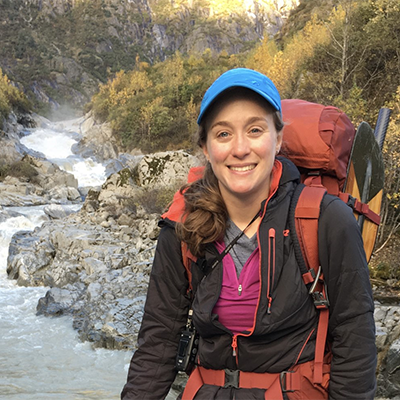Christie Wildcat - Engaging the Northern Arapaho Tribal Community in Environmental and Energy Decisions on the Wind River Reservation
Christie Wildcat
Biodiversity Graduate Student Research Enhancement Grant &
The Richard Baldes Native American Excellence Fund in Biodiversity Conservation Awardee
Department of Anthropology
Dr. Rachael Budowle
Professor and Author, Tracylee Clarke, writes of how Indigenous people serve the land, which makes them suited for the role of being protectors of that land in a unique way. This critical role helps drive Indigenous communities to seek to have a voice in opportunities when it comes to specific substances and actions regarding nuclear energy and mining (Clarke, 2010). A challenge that could occur when working with nuclear energy in mining (which can lead to economic development) only becomes a challenge when aiming to preserve culture and traditions (Clarke, 2010). Though nuclear energy and mining pale in comparison to traditions and culture preservation and are on opposite ends of the spectrum, both are crucial to Indigenous communities. Nuclear energy and mining can contribute to economic development; however these activities can still pose a challenge to those Indigenous communities, due to their potential destruction of the land and sites these communities hold sacred. In addition to impacts to people and land broadly, nuclear and all energy choices have implications for biodiversity and ecosystem services. Indigenous communities need to have a voice in their environments and energy options.
Idaho National Labs (INL) specializes in nuclear energy research. They approached several universities to help them conduct an emerging market analysis for micro-nuclear reactors in remote communities. Those communities have large Indigenous populations, who are dependent on diesel fuel and lack access to other energy sources. Their research seeks to understand how to engage those communities in energy decisions. This project aims to provide information about empowered decision-making in rural communities about natural resource energy and different factors of emerging energy technologies (Righetti et al. 2020). Due to the history of lack of trust of outsiders, our work in the INL project wants to understand how to engage and interact with the communities and to show the importance of better engagement with Native American communities in their energy decisions. The overall purpose of this research is to get a full understanding of how decisions are made on the Wind River Reservation and how we can better engage the community, specifically with regard to energy-based decisions.
To address this research purpose, my research questions include:
- How are decisions made in the Northern Arapaho Tribe on the Wind River Reservation?
- Is there a difference now and pre-colonization?
- How do decisions occur regarding energy on the Wind River Reservation and specifically within the Northern Arapaho tribe?
The abstract will outline context and background, research questions, potential to explore, and methods for my proposed thesis research.
Share This Page

Research Highlights





